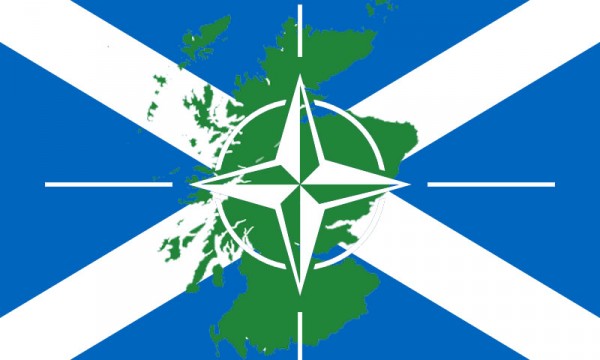With Scotland in the process of organising a referendum on its status in or out of the United Kingdom, the question of what to with the UK’s nuclear weapons based in Faslane are an issue of great interest to the anti-nuclear movement. Pressenza publishes here a press release by the campaign group NATO Watch. The original article written by Dr. Ian Davis can be found here.
Independent recommendations on SNP foreign and defence policy
A new report ‘Human Security in an independent Scotland: new thinking for new challenges’ by NATO Watch Director Dr Ian Davis has been released today, October 15th, in advance of this week’s SNP conference in Perth and is a contribution to the debate about Scotland’s membership of NATO.
This wide ranging report makes eight major recommendations:
- Place ‘human security’ at the centre of Scottish foreign and defence policy
- Remove Trident and support the development of Scottish and Nordic Nuclear Weapon Free Zones
- Apply to join NATO, but only after a consultation process and if approved in a separate referendum by the Scottish people
- To create an effective Scottish Security Force: undertake a credible threat assessment and develop a national security strategy and a unified security budget to match the threats; buy in to NATO’s ‘Smart Defence’ initiative to provide the military component
- Establish a Scottish Defence Diversification Agency
- To ensure that Scotland’s use of armed force is always in conformity with international law, make it a criminal offence in Scotland for any Scottish leader to commit an act of aggression
- Select the path of peace when intervening overseas: support Responsibility to Protect (R2P), which is not primarily about military intervention
- Establish a Scottish Peace Research and Education Centre
Scotland is located in one of the safest and least threatened parts of Europe. Nonetheless, it is a country with an important strategic legacy, active role in current UK defence affairs and potentially significant future security roles both within and beyond these shores.
The report, produced by the Highland-based NATO Watch, suggests a positive way forward for all those electors who have, thus far, indicated their support for an independent, non-nuclear Scotland – inside NATO. “An established majority supporting a progressive and independent non-nuclear Scotland could then proceed to decide if their best interests would be served by applying for NATO membership or deciding against it”, Dr Davis said.
It calls for a wide-ranging debate about Scotland’s role in the world based on a very different approach to understanding security concerns and needs, primarily with non-military outcomes envisaged. From this starting point, Davis builds on what he sees as the positive momentum engendered by the removal of Trident from a recognised Non-Nuclear Weapon State (NNWS) under the nuclear Non-Proliferation Treaty.
While recognising that there are strongly held opinions on this issue, he feels that the debate need not be as contentious as sometime presented. “I would suggest that Scotland could both make a positive contribution to a redefined collective security as a member of NATO and, by working with other like-minded countries, challenge NATO’s nuclear policy”, he concluded.
The report (a copy can be downloaded here) also suggests that one of the biggest obstacles to developing ‘a military-lighter National Security Strategy for Scotland’ is “the muddleheaded notion that independent armed forces are at the heart of what it means to be a sovereign country. They are not”, the report argues.










